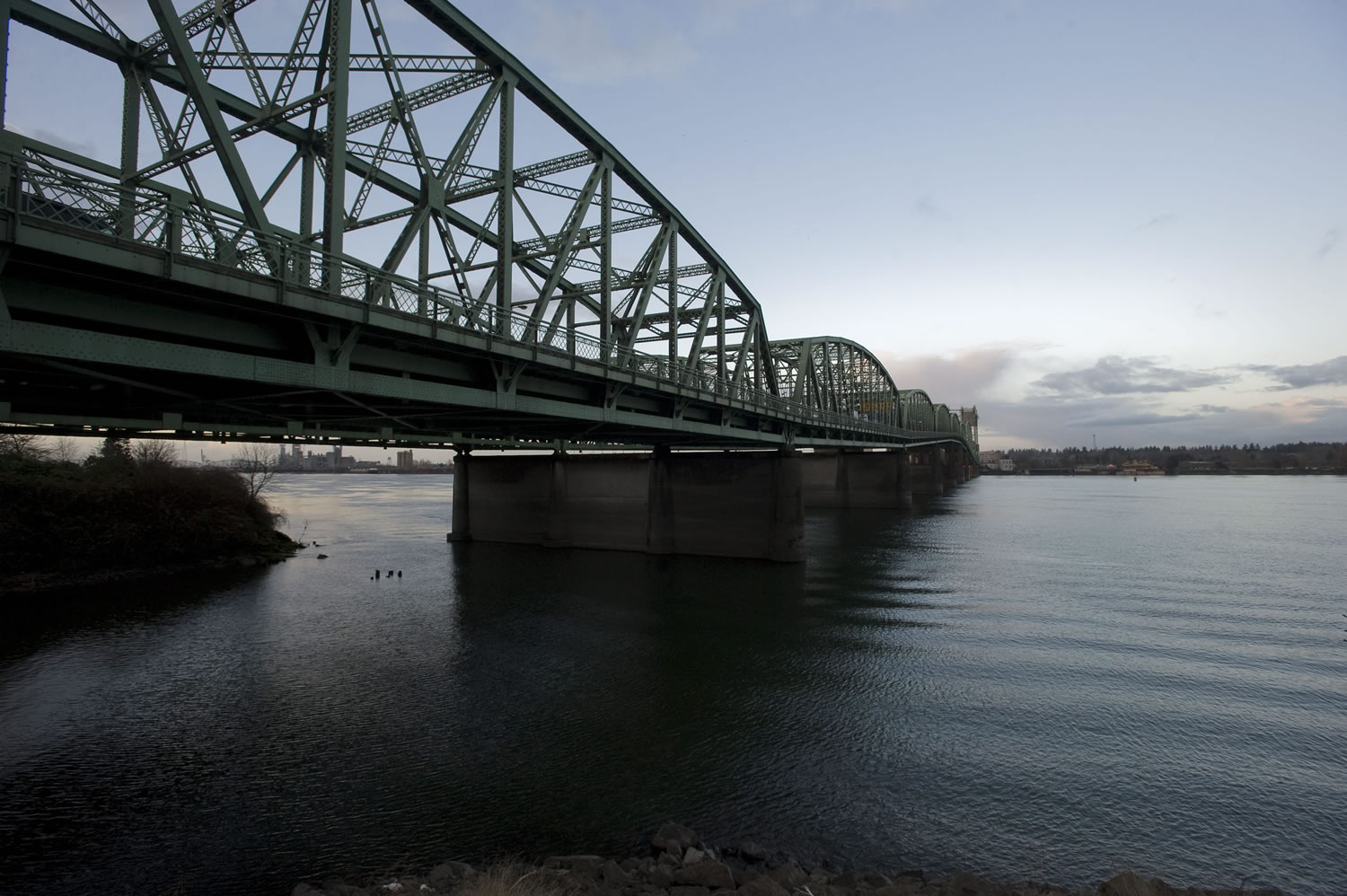The U.S. Coast Guard is still months away from making a decision that could make or break the Columbia River Crossing.
How to submit comments to the U.S. Coast Guard on the Columbia River Crossing:
o Online: Click here.
o By mail: Docket Management Facility (M-30), U.S. Department of Transportation, West Building Ground Floor, Room W12-140, 1200 New Jersey Ave. SE, Washington, D.C. 20590-0001
o Fax: 202-493-2251.
o In person: Public meeting 5 p.m. June 5 at Hilton Vancouver Washington, 301 W. Sixth St.
How to submit comments to the U.S. Coast Guard on the Columbia River Crossing:
o Online: Click here.
o By mail: Docket Management Facility (M-30), U.S. Department of Transportation, West Building Ground Floor, Room W12-140, 1200 New Jersey Ave. SE, Washington, D.C. 20590-0001
o Fax: 202-493-2251.
o In person: Public meeting 5 p.m. June 5 at Hilton Vancouver Washington, 301 W. Sixth St.
But the Coast Guard on Tuesday formally kicked off the comment period inviting the public to speak directly to agency that essentially holds veto power over the project.
Comments will be accepted between now and June 20. A pair of public meetings — one in Portland, one in Vancouver — will also gather feedback on June 4 and 5. The Vancouver meeting is scheduled for 5 to 8 p.m. June 5 at the Hilton Vancouver Washington, 301 W. Sixth St.
The Coast Guard is mulling whether to grant the CRC a crucial bridge permit, which the proposed Interstate 5 Bridge replacement needs to move forward. Coast Guard officials are aiming for a Sept. 30 deadline to make the decision.
The CRC filed its initial bridge permit application in January. Later told by the Coast Guard that more information was needed to begin the review process, the project sent additional documents last month.
Projections disputed
Among those documents is a new report that appears to show a shift in the way project officials characterize the economic impact of the CRC’s proposed 116-foot bridge height. Much of the focus has centered around three upriver manufacturers — Thompson Metal Fab Inc., Greenberry Industrial and Oregon Iron Works — whose largest products wouldn’t fit under the new bridge.
In an economics report given to the Coast Guard in April, the CRC estimated that combined economic damages to those three firms could land somewhere between $29.4 million to $48.7 million. But three months earlier, project officials said in the original permit application that the three fabricators could take a hit of up to $116 million in lost profits.
Representatives of the companies have said even that higher number was too low. Pushing the range even lower likely won’t sit well with the companies who will be compensated for those losses.
“They’re headed in the wrong direction,” said Tom Hunt, a spokesman for Thompson Metal Fab. “These are people whose survival depends on some relief from that bridge.”
The CRC is still in negotiations with all three companies to determine how much it will pay them as mitigation. Thompson and Greenberry have indicated they will relocate if properly compensated. But Hunt said the figures in the most recent documents are simply not enough to pencil out.
In an email, CRC spokeswoman Mandy Putney said the lower economic damages estimate is based on “additional market research on potential future height constrained projects.” But the project isn’t tossing out the earlier projections, as negotiations continue, she said.
“We expect this range to continue to be refined up to the point that we have mitigation agreements,” Putney said. The project hopes to have those agreements in place by Aug. 30, according to the documents.
Even as they raise concerns about the CRC and its proposed height, all three manufacturers have said they support the project. Hunt said Tuesday that Thompson is still hopeful for a good outcome.
With its latest economics report, the CRC also submitted thousands of pages in other documents to the Coast Guard last month as part of its application process. Though the public comment period is now open, the Coast Guard is still reviewing those materials.
The Coast Guard’s main focus is the bridge itself and its effect on the Columbia River. The project would also extend light rail into Vancouver and rebuild freeway interchanges on both sides of the river.
The bridge permit is only one key hurdle the project needs to clear this year to stay on track. The $3.4 billion CRC hasn’t lined up all the state and local funding it needs, and still faces a fight to get it. Project leaders hope to begin construction in late 2014, a schedule one oversight group has called “highly optimistic.”




